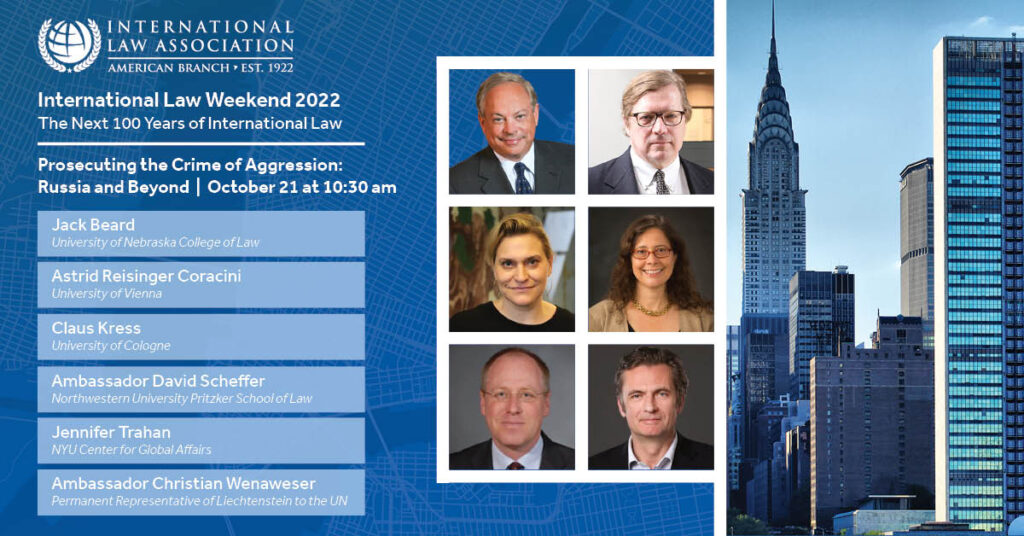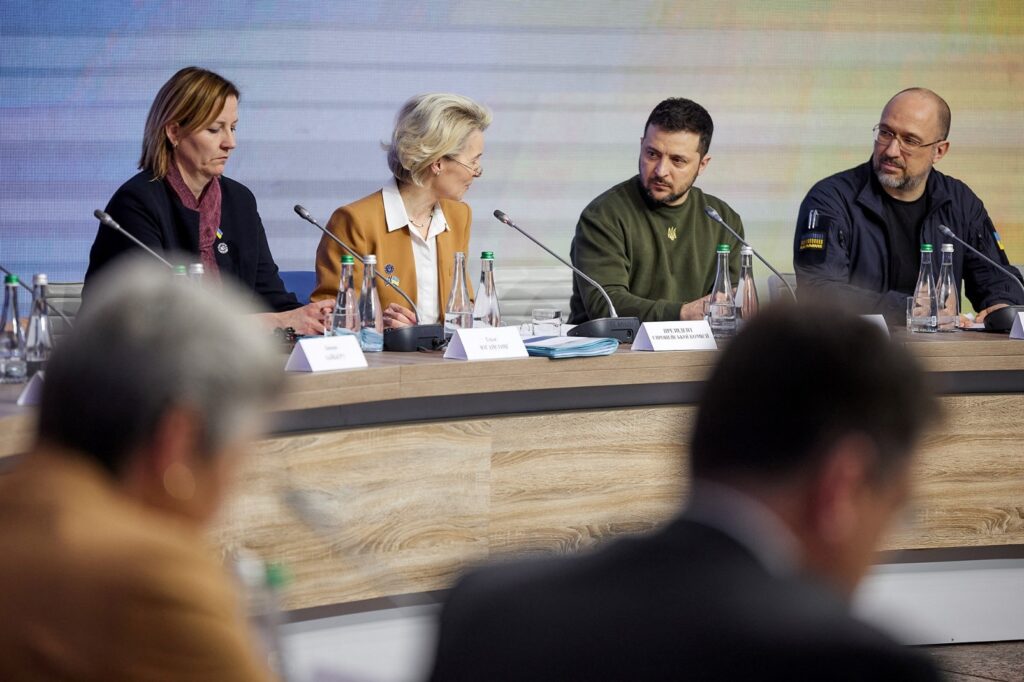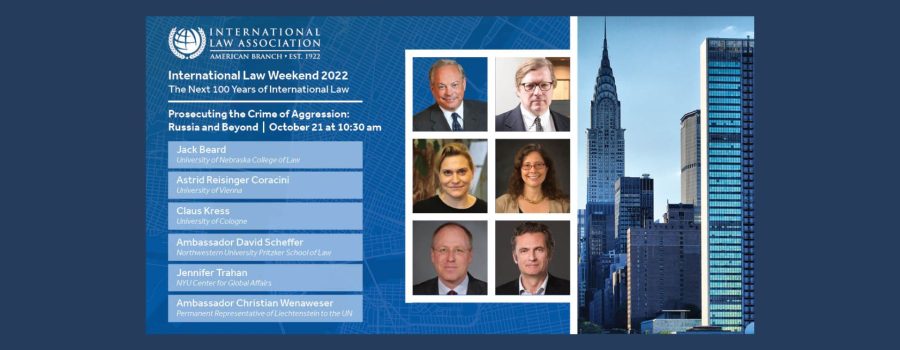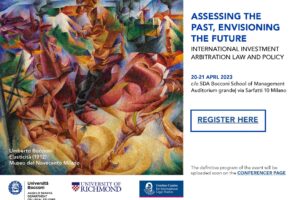Prosecuting the Crime of Aggression: Russia and Beyond – Reflections on an ILW 2022 Panel

By ABILA 2022 Student Ambassador Lotta Lampela, Syracuse University College of Law, LL.M Candidate
A week after the European Union, finally, declared its willingness to support the establishment of a specialized court to investigate and prosecute the crime of aggression against Ukraine, a surprising blow to the growing momentum was delivered by none other than ICC Prosecutor Karim Khan. While the reluctance of Prosecutor Khan may be understood as protectionist of his own turf, the opinion of numerous politicians, eminent practitioners, and scholars of international criminal law is that a special tribunal for the crime of aggression against Ukraine must be established. At stake is not only the future of the crime of aggression as more than a theoretical construct, but also the fate of countries neighboring a totalitarian aggressor.
On October 21, 2022, the second day of International Law Weekend, Professor Jennifer Trahan moderated a panel entitled Prosecuting the Crime of Aggression: Russia and Beyond, which discussed why such a special tribunal was necessary and how it could be brought about. The panelists, which included Jack Beard, David Donat Cattin, Astrid Reisinger Coracini, Ambassador David Scheffer, and Ambassador Christian Wenaweser, agreed that bringing the Russian leadership to justice was critical. While the ICC is already investigating “any past and present allegations of war crimes, crimes against humanity or genocide,” it does not have jurisdiction over non-parties involved in a crime of aggression. Neither Russia nor Ukraine are parties to the Rome Statute. Ukraine, however, has officially accepted ICC jurisdiction “for the purpose of identifying, prosecuting and judging the perpetrators and accomplices of acts committed in the territory of Ukraine” from November 21, 2013 onwards.

EU summit in Kyiv, Ukraine, on February 2, 2023. (Ukrainian Presidential Press Service/Reuters).
In theory, the UN Security Council can make a determination of an act of aggression committed by a State and refer a situation to the Prosecutor pursuant to Article 15 of the Rome Statute. In the current impasse, however, the crime of aggression articles of the Rome Statute are ineffectual. To overcome the straightjacketed Security Council and the truncated jurisdiction of the ICC, some of the panelists have suggested that the UN General Assembly authorize the establishment of a special tribunal instead. It would not be unprecedented: in 2002, the General Assembly requested the UN Secretary General to conclude an agreement with the government of Cambodia to establish the Extraordinary Chambers in the Courts of Cambodia (ECCC). It would, however, be the first time for the crime of aggression to be prosecuted since the conclusion of the Second World War. Ambassador Scheffer pointed out that as opposed to the victor’s courts in Nuremberg and Tokyo, the proposed special court would require the legitimacy brought about by the United Nations – something that a regional court would lack.
As the crime of aggression is a leadership crime by definition (Article 8 of the Rome Statute), questions of immunity arise. Proposals for the special tribunal by the Yale Club, represented in the panel by Ambassador Wenaweser and Astrid Reisinger Coracini, and the Global Accountability Network build on the understanding that personal immunities do not attach in international courts. (However, there are also those who are not convinced.) Thus, even an incumbent head of state could be subject to criminal proceedings in an international court with jurisdiction over the crime of aggression.
The international community has, also through UN Resolutions, widely condemned the Russian attacks, and several viable proposals for the establishment of a special tribunal have been presented. Regardless, no steps to that end have been taken because there are states that simply do not want an indictment of a head of state, David Donat Cattin argued. Some do not want it because of alliances, and some also, presumably, because of the precedent it would create: if the head of state of the Russian Federation can be indicted, then anyone can.
Before tabling a resolution that would authorize the establishment of the special tribunal, Ukraine will undoubtedly try to ensure enough support in the UN General Assembly. In important questions, which include recommendations with respect to the maintenance of international peace and security, the General Assembly decisions require a two-thirds majority of the members present and voting. In a situation where approximately a third of the world is taking measures against Russia due to the invasion of Ukraine, a third has supported Russia’s actions or repeated the Russian narrative on the situation, and the final third struggles to stay neutral, abstentions make it or break it. The first General Assembly Resolution on Aggression against Ukraine, adopted on March 2, 2022, gained as many as 141 votes in favor, with five countries against and 35 countries abstaining. In April 2022, when the General Assembly considered whether to suspend the rights of membership of the Russian Federation in the Human Rights Council, 93 states voted in favor and 24 against, with 58 abstaining. In the resolution calling for reparations by Russia, in November 2022, the votes were 94-14-73, respectively.
Regardless of the realpolitik of the UN decision making, Russian aggression against Ukraine is a brazen attack on the international order and the UN Charter. Leaving it unpunished would be a dangerous precedent with a broader global impact. For too long, noted Professor Beard, Russia has been using international law slyly, creating bogus republics under the pretext of self-defense in its aim to restore the Soviet Union. Impunity would be an open invitation for Russia – and any other country with similar imperialist ideas – to continue their deadly crusades into neighboring territories. In the words of Ambassador Wenaweser, “If we want international rule of law, we must have a credible prospective for the prosecution of the crime of aggression also in the future.”

Lotta Lampela. International Law Weekend 2022, New York.



